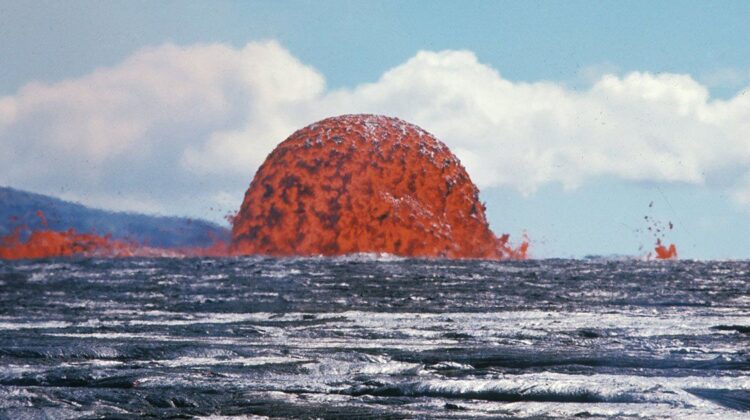
The Mauna Ulu eruption of Hawaii’s Kilauea Volcano lasted an astonishing 1,774 days, spanning five years. It was Kilauea’s longest-running eruption at the time, with 460 million cubic yards of lava generated. The spectacular eruption was visible to the public via observation platforms from 1969 to 1974, and it generated several extraordinary natural phenomena rarely observed during volcanic eruptions.
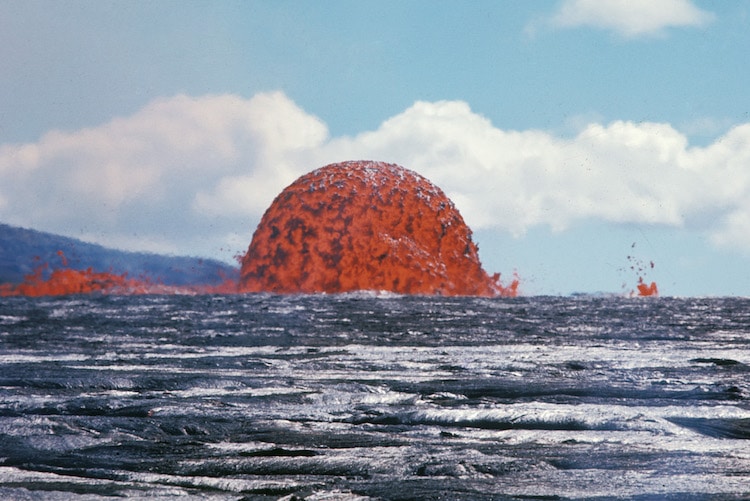
The US Geological Survey just shared an image of an unique dome fountain shot by photographer J.B. Judd in 1969. The symmetrical dome fountain, which stood 65 feet (20 meters) tall, was one of twelve fountaining occurrences that occurred during the eruption’s first year. During the fountaining occurrences, the outward spread of lava was so strong that it poured into the ocean 7.5 kilometers distant.
From October 10 to October 13, the symmetrical dome fountain lasted several days and may have reached a height of up to 245 feet. So, what is it about this dome fountain that makes it so unique? Upward lava sprays, similar to a geyser, are typical fountaining phenomena. Instead, seeing a luminous ball like Epcot Center made of lava is quite unusual. Despite the fact that the domed fountain appears to be floating on the water in the shot, the event took place on land. In the front, the waves are really lava ripples.
When gas bubbles up in the molten rock, an eruption of lava from a fissure, vent, or lava lake is triggered, the molten rock expands and explodes, causing fountaining. Though Mauna Ulu is no longer the longest-running eruption (that honor now belongs to Pu’u “, which has been active since 1983), the image serves as a reminder of how active Hawaii’s volcanoes have been throughout history.
The Mauna Ulu eruption of Kilauea Volcano, which lasted from 1969 to 1974, is depicted in photos from the US Geological Survey’s archive.
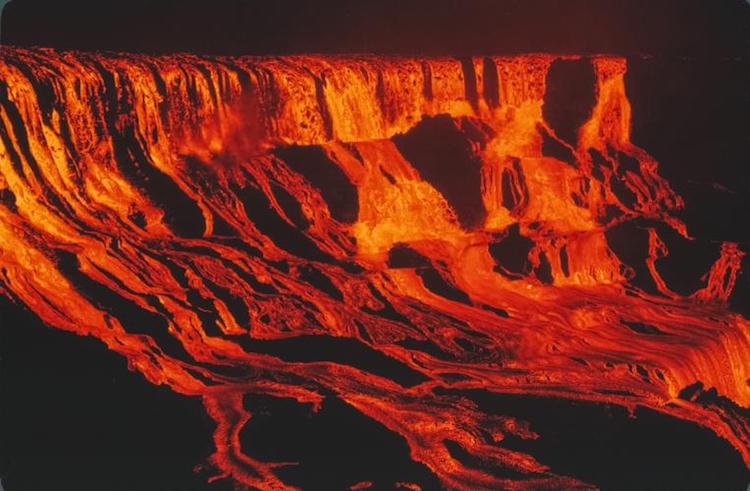
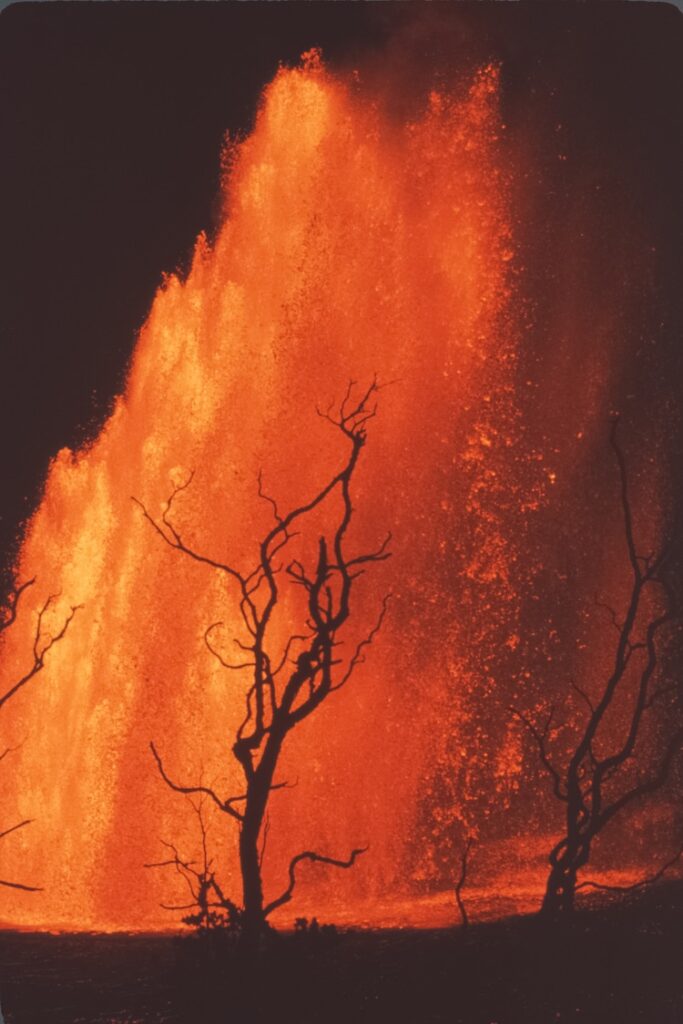
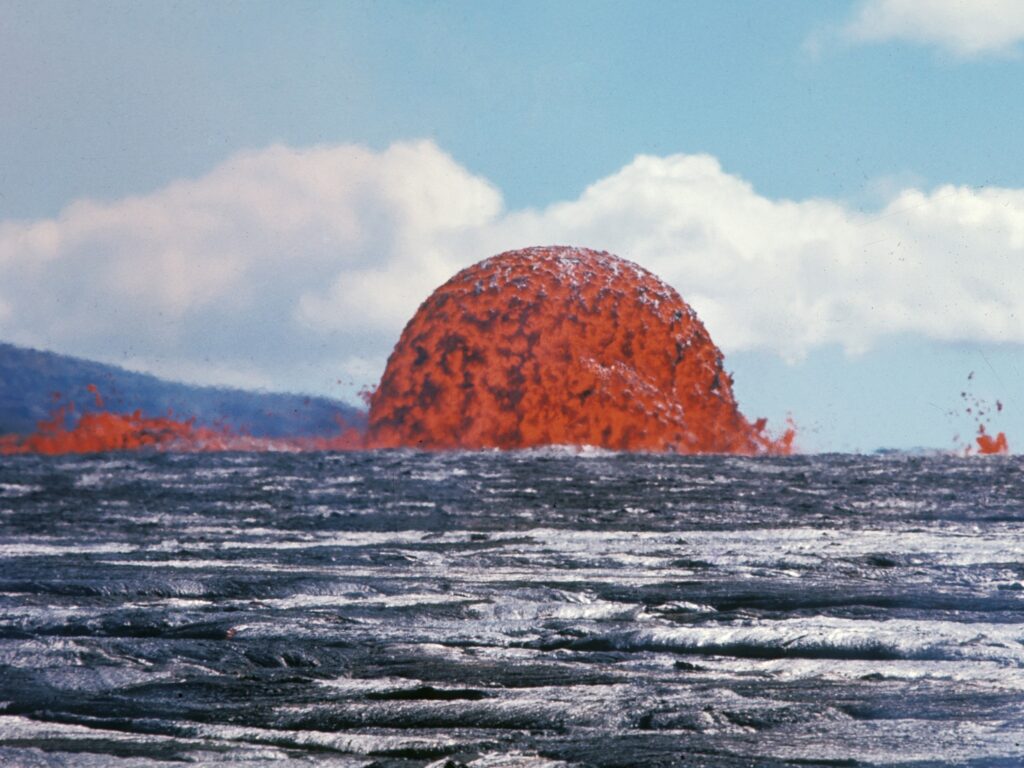
h/t: [Petapixel]
